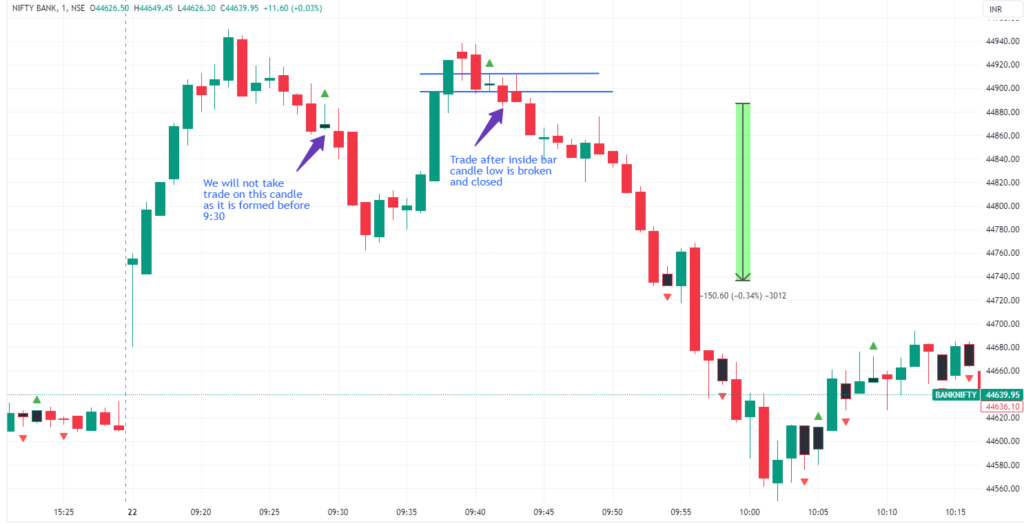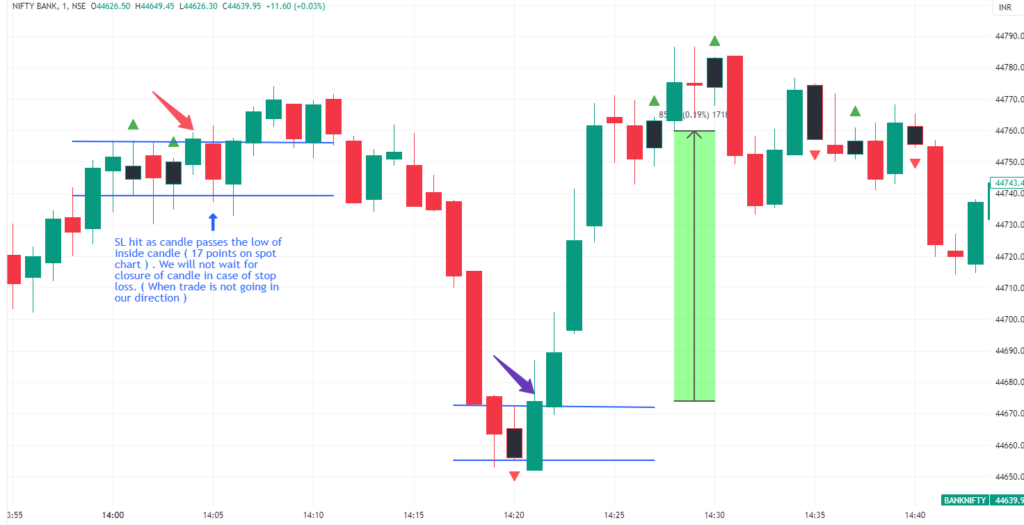In this “Intraday trading strategies: No 3”, we will discuss Inside Bar Scalping strategy. This we can apply when we can expect prices to go up or down basis price action.
Concept
- It is a two-candle pattern, in which the Inside Bar is smaller and within the range (Difference between high and low of the candlestick) of the prior bar (Mother bar), i.e., the high of inside bar is lower than the mother bar’s high, and the low of inside bar is higher than the mother bar’s low.
- Inside candle signifies that range of trading is narrowed or consolidation is happening and there is a probability that range will now expand going forward.
- Range expansion results in a breakout and trade is taken in the direction of breakout. Breakout means when any candle after inside candle pattern breaks the high or low of inside bar.

Inside Bar Candle Scalping Strategy
Indicator used: Inside Bar by cma

There is one slight change in settings which you have to do in this indicator . Change the color of the inside candle to black so that you can identified it easily once pattern is formed on candlestick chart.

Entry rule
Step 1: We will take entry either in morning (9:30 am to 10:30 am) or in the evening (2 pm – 3 pm). This means you need to monitor the market for only 2 hours per day to take the entry and exit.
Step 2: Wait for this pattern to form on candlestick charts.
Step 3: Mark high and low of the inside bar.
Step 3: Wait for any 1 min bar closing above or below the high of the Inside bar. Let us name this candle as “breakout candle”
Step 4 : Take the trade at breakout candle with nearest ATM or ITM call

Stop loss
Stop loss will be high or low of the inside bar depending on the direction where breakout has happened. If breakout has happened on upside, then low of inside bar will be SL and if breakout happened on the downside, then high of inside bar will be SL.
Important point : If SL is more than 100 points on Bank Nifty or more than 50 points on Nifty (on spot chart ), then we will not take that trade and again wait for inside bar to be formed and follow entry rules.

Exit rule
Step 1: The first target will come at a risk reward of 1 . This means if risk is 30 points (On Spot chart ) then we will exit 50% of quantity once prices move 30 points in our direction on spot chart
Step 2: The SL of remaining 50% quantity will be moved to buying price. So, if SL hits on remaining 50% quantities, then there is no loss.
Step 3: We will exit remaining 50% quantities at risk reward of 2.
While this is a simple strategy with exit and entry rules , scalping should be done when you have some experience in intraday trading on a slightly higher timeframe ( 5mins or 15 mins).
Any opinions, news, research, analyses, prices, or other information contained on this website is provided as general market commentary for educational purpose only and does not constitute investment advice. StocksGully will not accept liability for any loss or damage including, without limitation, to any loss of profit which may arise directly or indirectly from use of or reliance on such information.

